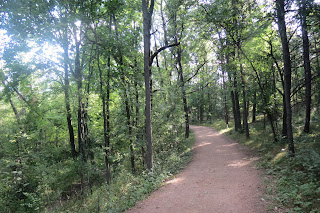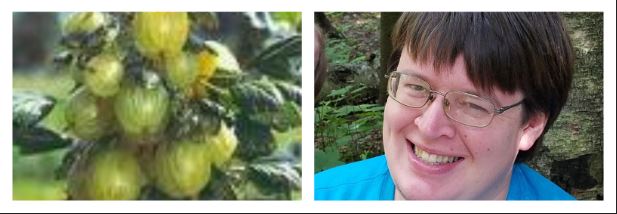A while back, Himbeere bought him a truck. It wasn't new, it was a used truck, but it was the most he'd ever paid for a vehicle and the hope was that it would move him into the class of vehicles that are more reliable than the old rust-buckets he's bought since his first one, an old jeep wrangler, many years ago. His price range had never allowed him to get out of that bottom class of cars that are just barely running still. Disposable cars, I've always called them. Basic transportation, is what most people call them. Not even that, really.
Anyway, it turned there was no escapee with this truck, either. A few months after he bought it, it began to have engine troubles. With going through all those old beaters and trying to keep them running, Himbeere has learned a fair amount about repairing cars but the trouble his truck was having escaped him. Nor were any of his mechanically inclined buddies able to figure it out either. Finally he took it to a mechanic who determined it had a spark plug issue. Indeed, the issue was a bad design that prevented the installation of a new plug. Such that the manufacturer had been sued over it and it had turned into a class action. Members of the class were able to get the issue repaired at no cost to them. Unfortunately, Himbeere did not qualify as a member of the class. He was on his own and really, the proper repair was to replace the engine. Not a cheap thing to do.
Gradually, the truck's engine performance deteriorated until it became unreliable. Finally, he parked it in the driveway and bought another old beater while he decided what to do with it. Back to disposable cars again. Very disappointing.
Anyway, Christmas came and we had lots of company at our house. To help accommodate all the vehicles that were around, Himbeere parked his truck out on the street, but far enough into the yard that it wasn't sticking out in the road interfering with the snow plows.
Frankly, I was expecting him to get a ticket but he never did. The city has an ordinance against parking on the street from October to April so they can plow but he was far enough into the yard that the plows could get by without going around him so they never complained. The truck sat there all winter.
Pretty soon his truck was pretty much buried, snowed and plowed in.
This wasn't our heaviest winter (at least since we've lived here) as far as snow, but there was more snow than the last couple of years so by late winter his truck was thoroughly stuck.
But spring finally came and the snow began to melt. Gradually the snow melted off and his truck became visible again.
Little by little, as the days got warmer, the truck began to emerge from under all the snow. Yep, it was still there.
It was almost like one of those contests to see when the last of the snow would melt.
And then it was all gone. About that time I began to bug him to move it off the lawn. It would interfere with mowing and block the sprinklers from doing their job.
Sure enough, unable to mow really close without scratching the truck, I got as close as I could. But it wasn't close enough to keep the grass down. I don't do the trimming every time - lazy that way, I guess. And sure enough, eventually some weeds got started and got growing. And there was a sprinkler head under the truck, near the back driver's side tire. Every time I brought it up, Himbeere thanked me for keeping the underside of his truck clean.
But, despite his gratitude, Himbeere never go around to moving it. And the weeds got a little bigger.
Then the city noticed it. I'm not sure if someone complained or if someone on staff at the city noticed. In any case, we got a letter from the city telling us we had ten days to move the truck and mow the weeds back down under control. If we didn't get it done they would hire it done and access us the cost of the work.
That finally stirred Himbeere into action. First thing he tried was to just take the key out and try starting it. But he knew that wasn't going to work - he already knew the battery was dead. And he was right. Turned the key and got absolutely nothing.
The next step was to pull his other truck, which he had recently bought and which is looking like it will be the reliable vehicle he was hoping to get in the first truck, and try jump starting it. So he hooked the two together and gave the key a twist. Nothing. So he left them hooked together a little while so the battery could charge up a little. But when he tried it again, still nothing.
So we dusted off my old battery charger, which is older than Himbeere, and hooked it up. We left it on all night. But the next day, when we tried starting it again, still absolutely nothing. No crank, not even a click.
So this morning Himbeere went to the local salvage yard and bought a $15 battery. It sparked a bit as he put it in, that was a good sign. When he got it all in and put together I got in the truck and turned the key. The radio came on, along with a few lights - another promising sign. I turned the key and it turned right over and fired right up! Hallelujah! It actually ran pretty smooth for having sat all these months without ever running.
So I put it in reverse (didn't want to hit the mailbox) and took my foot off the brake. Didn't budge. I gave it a little gas. Still nothing. I checked to make sure the parking brake wasn't on and gave it some gas and it finally busted loose out of its spot and rolled back. I guess with all the moisture from the snow and sprinklers, it had sunk down into the ground an inch or two.
So I swung around the mailbox and out into the street, bringing a little dirt with me.
You can see the spots where the tire were - a holes a few inches deep.
After I backed it into the driveway I got the mower out and went over the spot a few times to get it mowed down like the rest of the front yard. I had mowed the rest earlier this morning. Now we'll see how long it takes for the grass to come back.
So now its back in the driveway, occupying its old spot again. I left enough room so I could still mow the lawn around it but there it will sit for who knows how long. Until Himbeere decides what he's going to do with it. Who knows how long that will be. He doesn't seem to be in much of a hurry.
Having if off the lawn really changes the perspective of the front yard. In any case, the city should be happy. The unsightly weeds are gone. And I'm happy to have it off the front lawn. I'd like it out of the driveway, as well, but I'll settle for having it off the lawn. It's really unfortunate the truck turned out to be such a disappointment.


















































